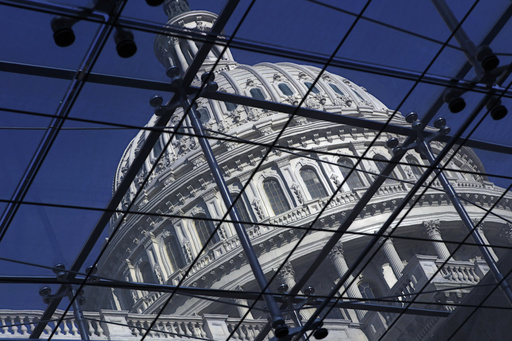The artificial intelligence sector has significantly increased its lobbying efforts in recent years, enlisting numerous influencers to help shape potential government regulations. AI technology is rapidly being adopted by influential industries like healthcare, defense, and financial services, prompting these sectors to seek a voice in potential legislation.
Lawmakers are increasingly turning to AI lobbyists for guidance due to the fast-paced evolution of technology, outpacing the ability of think tanks, nonprofits, and academia to keep up with the constant changes. Armed with PowerPoint presentations and briefing papers, AI industry lobbyists are engaging with lawmakers and their staff to provide insights into the intricacies of AI technology.
Despite these lobbying efforts, legislation targeting AI regulation has seen little progress, with lobbyists and lawmakers crediting the industry’s successful campaign for this lack of movement.
Lobbyists in Washington are swiftly gaining clients interested in AI, reflecting the expanding technology and Congress’s need to navigate appropriate regulatory frameworks. The Open Secrets study revealed a significant surge in the number of organizations lobbying on AI, with corporate giants such as Microsoft, Intuit, and Amazon playing a key role in the lobbying efforts.
The lobbying focus is primarily on advocating against stringent European-style regulations on AI, with lobbyists emphasizing that the US does not need to follow the EU’s lead. The EU recently passed the Artificial Intelligence Act, marking a significant step in AI regulation.
A major aspect of AI lobbying involves educating lawmakers on how the technology operates. Lobbyists are positioning themselves as valuable resources for information on the constantly evolving industry, fostering relationships built on trust and understanding with policymakers.
While academia and nonprofits provide crucial nonpartisan analysis on AI, they are struggling to keep up with the pace set by AI companies and trade associations in influencing Congress. This disparity underscores the dominance of industry-led lobbying efforts in shaping AI regulation discussions in Washington.
Despite efforts by academia and nonprofits to engage with lawmakers on AI-related matters, the lack of resources and access to cutting-edge technology hinder their ability to match the lobbying prowess of industry representatives. The unequal playing field raises concerns about the influence of well-funded industry lobbyists on AI regulation discourse.
